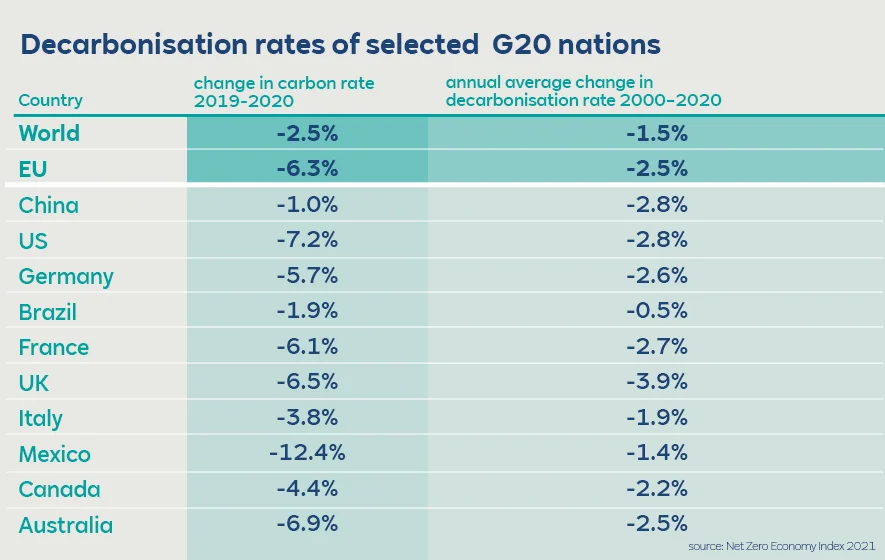Worldwide greenhouse gas emissions are declining too slowly. To hit the 1.5°C warming target of the Paris Climate Agreement, the rate of pollutant output decrease would have to increase five-fold compared to 2020. This is the conclusion drawn by the Net Zero Economy Index published by the UK branch of business consultancy PwC. The Index gauges progress made in decarbonising energy-related emissions around the globe. Here, the spotlight is on the G20, i.e. the 20 most important industrial and emerging countries.
The analysis delivers results that are sobering at first glance. In 2020, none of the countries examined boasted a rate of decarbonisation sufficient to achieve global climate goals. However, the experts claim that this does not put the 1.5°C goal entirely out of reach. They believe that cooperation and subsidisation of climate protection measures in the private sector are particularly decisive in this regard.
Required target quota far above world average
Calculations of the Net Zero Economy Index peg the necessary annual decarbonisation rate at 12.9 percent. This means that global greenhouse gas emissions would have to drop this much every year and be halved by 2030. However, real figures are much lower. Although worldwide demand for energy declined by 4.3 percent in 2020, the rate of decarbonisation was a mere 2.5 percent. The target decarbonisation rate of 12.9 percent is thus five times higher.
In fact, not a single country reached this quota in 2020. Only Mexico (12.4 percent) and Indonesia (10.6 percent) came close. However, experts believe that this is due more to restrictions in reaction to the global COVID-19 pandemic than long-term efforts to protect the climate.
Stronger cooperation in private sector necessary
The Net Zero Economy Index accords a key role to the private sector in the future implementation of climate measures. In the past two years, more companies than ever have made a commitment to hitting net zero targets with a view to bringing their corporate policy in line with international climate goals. As they cannot go this alone, however, the experts call for increased cooperation among sectors and across the entire industry. They are convinced that clear signals must be sent by policymakers by introducing requirements. According to the study, this is the only way to keep the net zero goal within reach.

